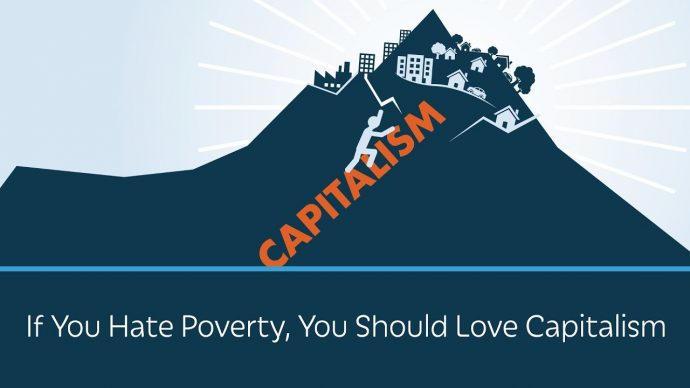It’s called the information war and here is yet another way our side is failing to fight it — here is Arthur Brooks in a terrific new video from Prager University:
According to a Harvard Study, only 42% of young Americans 18 to 29 have a favorable view of capitalism. What explains this discrepancy between the incredible results of capitalism and its popularity? Why does capitalism get such bad rap?
One answer is simple: The defenders of free enterprise have done a terrible job of telling people how much good the system has done around the world. Capitalism has saved a couple billion people, and we have treated this miracle like a state secret.
According to a 2013 survey, 84 percent of Americans are unaware of the progress made against poverty worldwide. Indeed, more than two-thirds think global hunger has actually gotten worse.
Here is the opening of Brooks’ presentation:
The next time you hear someone complain about capitalism, consider this: The percentage of people living at starvation level poverty has fallen 80% since 1970. Before then, more than one in four people around the world were living on a dollar a day or less. Today, it’s about one in twenty.
This is the greatest anti-poverty achievement in world history. So, how did this remarkable transformation come to pass? Was it the fabulous success of the United Nations? The generosity of U.S. foreign aid? The brilliant policies of the International Monetary Fund and World Bank? Stimulus spending? Government redistribution?
No. It was none of those things.
It was capitalism. Billions of souls around the world have been able to pull themselves out of poverty thanks to five incredible innovations: globalization, free trade, property rights, the rule of law, and entrepreneurship.
Globalization means the ever-increasing ability to move goods, people, and ideas from one distant location to another. Free trade is open access to markets and people from all over the world with few, if any, barriers. Property rights is ensuring that what belongs to you can’t be taken away on a whim by the state. The rule of law safeguards contracts, assuring that they will be respected and lived up to whether the deal is made in Peru or Poland. And entrepreneurship is the creativity of free people to dream up new products that we never
knew we wanted or needed.Read more: Prager University

